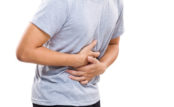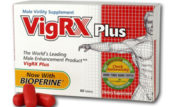Don’t do hormone replacement therapy to keep mental clarity after menopause.
 That’s the prevailing thought, anyway, according to a new study, released last week, in which researchers proposed no benefit to post-menopausal women who pursue synthetic estrogen to keep their synapses firing on all cylinders. Age didn’t matter either; whether they were five or ten years beyond menopause. Synthetic estrogen may not help.
That’s the prevailing thought, anyway, according to a new study, released last week, in which researchers proposed no benefit to post-menopausal women who pursue synthetic estrogen to keep their synapses firing on all cylinders. Age didn’t matter either; whether they were five or ten years beyond menopause. Synthetic estrogen may not help.
The study illustrates several misconceptions about menopause, one of the more notable being that declining estrogen may not affect mental function beyond child-bearing years. And women who use HRT specifically for this purpose may end up disappointed – to say nothing about the potential health risks they may be taking.
Yet, look at the study from a different perspective, and it might actually be good news. Menopause is dramatic, but it’s more than manageable. Women concerned about memory in their senior years would do well to look beyond synthetic hormones and focus instead on crosswords, a second language and other, often fun ways to use the brain.
The average age for menopause is about 50.
Study: Dwindling Estrogen Not Responsible for Loss of Memory
You’re not alone if you think menopause leads to mental decline. Scientists thought so too, and were caught off-guard when they found otherwise.
The study, which was published on November 25 in the Proceedings of the National Academy of Sciences, consisted of 600 women between 41 and 84. Researchers split the women in two groups: those within six years of menopause and women who’d been through it at least ten years previously.
Since estrogen tapers off with age, and if their theory held true that such a decrease would lead to mental decline, the elder of the study participants would have reduced memory and strategic planning ability. There was just one problem – things didn’t turn out that way. Researchers found no evidence of lost mental capacity from lower estrogen in any of the women, regardless of age, measured by decreased levels of estrogen in the blood.
Studies are back and forth on if HRT can increase risk of breast cancer, but some evidence also ties synthetic hormones used after menopause to heart disease, stroke and blood clots.
Study lead Dr. Victor Henderson, professor of neurology and neurological science at Stanford University comments the results suggest that women should not pursue hormone replacement therapy to bolster mental function past menopause. It’s a sentiment echoed by Dr. Jennifer Wu, an obestritican and gynecologist at Lenox Hill Hospital in New York City, who says it’s a common misconception that lower estrogen leads to mental decline.
In fact, the study opens further debate as to the value of hormone replacement therapy in general. Wu mentions there are other medications for hot flashes, and given the rumblings since 2002, when the Women’s Health Initiative found a link between HRT and risk of breast cancer, sales of hormone therapy treatments have tumbled over the past decade. And they’ve yet to recover.
Studies are back and forth on if HRT can increase risk of breast cancer, but some evidence also ties synthetic hormones used after menopause to heart disease, stroke and blood clots. When prescribed, many doctors recommend HRT for the shortest time possible – typically six months or less.
Natural Supplements For Menopause
If we sound a little unfriendly toward hormone therapy, it’s because we know there are natural supplements for menopause that make life more enjoyable for women during this transitional period. There are supplements for sex drive and lubrication, for example, that serve the libido-related functions of hormone therapy, but being natural, are generally well-tolerated.
Barring any specific health concerns – speak with your physician first in that scenario – consider the following natural supplements for menopause:
Black Cohosh Root: The best-selling natural menopause supplement in the United States appears to reduce hot flashes. Research continues with black cohosh root, though experts warn not to take it if you have liver problems.
Flaxseed: High in beneficial omega-3 fatty acids, flaxseed also comes with lignans, which appear to balance female hormones. Good for mild symptoms of menopause.
Calcium: Women are at higher risk of osteoporosis than men, especially when hormones drop. As a general guideline, women under 51 should get 1,000 milligrams of calcium per day, and 1,200 mg at 51 and beyond. Note too that you’ll get better calcium absorption with two or three smaller doses through diet than with a mega-supplement. Speak with your doctor for more information.
Red Clover: Rich in natural plant estrogens, red clover is quickly catching on in North America as a natural menopause supplement. Results have been mixed so far, and women with estrogen-positive cancers of the breast or uterus should not use red clover without speaking with their doctor first.
Vitamin D: It’s hard to feel down with vitamin D. Your bones like it too – vitamin D helps your body absorb the calcium needed for bone health. Adults typically need about 600 IU a day and often 800 IU at 71 and beyond. Get vitamin D through diet, supplements or sunlight, with sunscreen applied to the face during summer.
 Ginseng: A few studies suggest that ginseng may improve mood and help sleep, both of which can be affected by menopause. The jury is still out on whether ginseng can relieve hot flashes though, whether American ginseng or the Korean variety.
Ginseng: A few studies suggest that ginseng may improve mood and help sleep, both of which can be affected by menopause. The jury is still out on whether ginseng can relieve hot flashes though, whether American ginseng or the Korean variety.
St. John’s Wort: A popular natural treatment for mild depression, St. John’s Wort may be of particular interest to menopausal women. Some evidence suggests that it may improve mood and reduce mood swings from menopause, especially when combined with black cohosh root.
Soy: Only five percent of Japanese women get hot flashes, yet they’re eight times more common in the U.S. One possible reason: the Japanese diet is rich in soy, which studies suggest is moderately effective for reduction of hot flashes. You can get soy in foods like soynuts and tofu. Soy and phystoestrogen supplements are available too, though speak with your doctor before trying this option.
You can do other things to reduce menopause symptoms as well. Diet plays a huge role in quality of life, and you may find that the menopause-friendly diet, which is high in calcium, iron, fiber and fruits and vegetables, can alleviate symptoms of menopause and make the transition more comfortable.
Visit the Office on Women’s Health at the Department of Health and Human Services to learn more about menopause and further steps you can take as your body moves to its next phase of development.
Keep Your Brain Active
Having said all this, you do indeed face the unpleasant risk of lost mental and cognitive function. While it might not be linked to dwindling estrogen, it’s still a threat to the vast majority of adults. Roughly 10% of adults over 65 and more than 50% at 85 and beyond have Alzheimer’s disease – a devastating form of dementia that robs enjoyment of life for those it affects.
Sadly, Alzheimer’s appears to target women more often than men, though it’s common among male patients too.
Admittedly, there is much we don’t know about Alzheimer’s and the mental decline linked to it. We do know, however, that the brain has a strong ‘use-it-or-lose-it’ trait. Synthetic estrogen may not help your memory or related functions, but keeping your brain active with these tips just might:
Use Your Brain: Keep your brain on its tippy-toes, especially beyond 60, with mental and fun activities like puzzles and word games. American neurologist Dr. Richard Restak – an expert on brain health and function – has written 18 books on the human brain, of which The Playful Brain may be of particular interest.
Stay Active and Be Social: Don’t neglect your body or your social ties either; both physical activity and social interactions appear to delay dementia and its symptoms.
 Don’t Smoke: Yet another reason to quit this nasty habit, studies hint that smoking in middle age and later years might increase risk of dementia and vascular (blood vessel) diseases.
Don’t Smoke: Yet another reason to quit this nasty habit, studies hint that smoking in middle age and later years might increase risk of dementia and vascular (blood vessel) diseases.
Reduce Blood Pressure: High blood pressure appears to be another risk factor for dementia and its life-altering symptoms.
Take Educational Courses: Research suggests that education may alter the brain’s development in a positive way. People with more formal education appear to have more extensive nerve cell networks, which may help counteract cell degeneration caused by Alzheimer’s disease.
Eat Healthy: We’ve already reviewed the basics of a good diet for menopause. The good news is that fruits, vegetables, and the omega-3 fatty acids found in foods that reduce menopause symptoms also nourish your noggin and may keep dementia at bay. No hormone therapy required.




